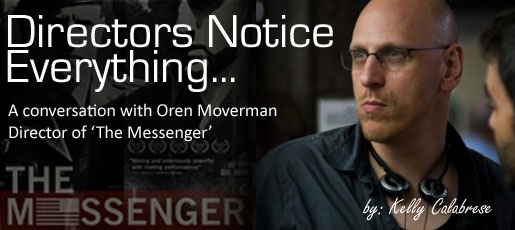Industrial acting continues to be a growing industry that provides actors with the opportunity to showcase their talents in a unique setting. Industrial productions are typically created for businesses to train their employees or to promote their products, services and initiatives. This means that industrial actors need to be able to deliver information clearly and effectively while still being engaging. (I’ll share a broader explanation down below.)
While it may seem like a departure from the glitz and glamour of traditional acting, there are plenty of reasons why actors might want to consider this type of work.
Why Become an Industrial Actor
Industrial acting can provide a steady stream of income between more high-profile gigs. Many actors find that the unpredictability of the entertainment industry can make it difficult to make ends meet, but by taking on industrial jobs they can enjoy more stability and financial security. Industrial acting also allows actors to use their skills in new and interesting ways while still challenging themselves creatively.
The Importance of Industrial Acting
Now we can get into the thick of it —
We’ve established that industrial acting is a subset of acting that involves using acting skills in a corporate or business setting. Industrial actors may work for a variety of clients, including corporations, non-profit organizations and government agencies.
Have you ever played laser tag or gone go kart racing? If yes, more than likely you were instructed to watch a short safety video. Wa-lah! The person in the video is an industrial actor!
To break it down, industrial acting can be an effective way to convey complex information in a way that’s memorable. By using acting techniques, industrial actors can bring training materials to life, making them more accessible and enjoyable for employees. In advertising, industrial actors can help sell products and services by delivering persuasive and compelling performances. Here are some examples:
-
Safety training videos: Actors are often hired to play out scenarios in workplace safety training videos, such as how to properly use equipment, how to handle hazardous materials or how to respond to an emergency situation.
-
Sales training videos: Actors may also be hired to demonstrate sales techniques, showcase product features or model how to interact with customers in a sales training video.
-
Corporate promotional videos: Actors can be cast to portray employees or customers in a corporate promotional video, where they may provide testimonials or demonstrate the benefits of a product or service.
-
E-learning courses: Actors can also be used in e-learning courses, where they may deliver lectures, role-play scenarios or provide examples to illustrate a concept or skill.
-
Internal communication videos: Actors may be employed to play out scenes in internal communication videos, such as company announcements, training videos or policy updates.
Training for Industrial Acting
Like traditional acting, industrial acting requires training and practice. Many industrial actors begin their careers with a background in traditional theater, film or television acting. However, there are also specialized training programs and workshops available specifically for industrial actors such as improvisation, public speaking and character development. And the actor must be comfortable working in a variety of settings such as corporate boardrooms, training sessions and advertising shoots.
How to Succeed as an Industrial Actor
-
Specialize in Industrial Roles: One of the best ways for an actor to succeed as an industrial actor is to specialize in roles related to the industrial sector. This could involve studying the technical aspects of industrial work, such as manufacturing, engineering or construction. By having a strong understanding of the industry, an actor can convincingly portray characters in industrial settings and bring authenticity to their performances.
-
Build a Strong Network: As with any acting career, building a strong network is crucial for success. In the case of industrial acting, this could involve connecting with casting directors, producers and other industry professionals who work specifically in the industrial sector. Attending industry events and networking with fellow actors and professionals can help an actor gain visibility and opportunities in the industrial space.
-
Develop Strong Communication Skills: Industrial acting often requires an actor to communicate technical information in a clear and concise manner. Therefore, it’s important for an actor to develop strong communication skills which can help an actor think on their feet and deliver lines with confidence and clarity.
-
Embrace Safety Protocols: Many industrial roles require an actor to work with heavy machinery or in hazardous environments. Actors should embrace safety protocols and take precautions to protect themselves and others on set. This could involve wearing protective gear, attending safety briefings and following all safety procedures.
-
Stay Flexible: An actor must stay flexible and adapt to the unique demands of each industrial acting role. This could involve learning new skills, researching technical information or taking on physical challenges. By being open to new experiences and willing to take on challenging roles, an actor can succeed as an industrial actor and bring authenticity and depth to their performances.
-
E-learning courses: Actors can also be used in e-learning courses, where they may deliver lectures, role-play scenarios or provide examples to illustrate a concept or skill.
-
Internal communication videos: Actors may be employed to play out scenes in internal communication videos, such as company announcements, training videos or policy updates.
Justice Smith plays a bookstore manager in the film Sharper
Career Prospects for Industrial Actors
If you play your cards right, industrial acting can be a lucrative and rewarding career path. The demand for industrial actors is high, with many companies looking for effective ways to deliver training and advertising messages to their employees and customers.
Industrial actors may work on a freelance basis, or they may be employed by a production company that specializes in industrial acting. Some industrial actors also work as corporate trainers, using their acting skills to deliver training materials to employees. (As boring as this may sound, think of it as an “entertainment” acting job, where you play the role of a salesperson or, let’s say, a bookstore manager in a film.)
In terms of salary, industrial actors can earn anywhere from a few hundred dollars to several thousand dollars per day, depending on the project and their level of experience. Some industrial actors also receive residuals, which are payments made for ongoing use of their image or performance.
Check Out This Industrial Training Video
I’ll leave you with this…
In case you’re wondering what an industrial training video looks like, watch this 1992 McDonald’s Employee Training Video because not only are actors in it, but so is the basketball player Michael Jordan! Even the great MJ does industrials!








